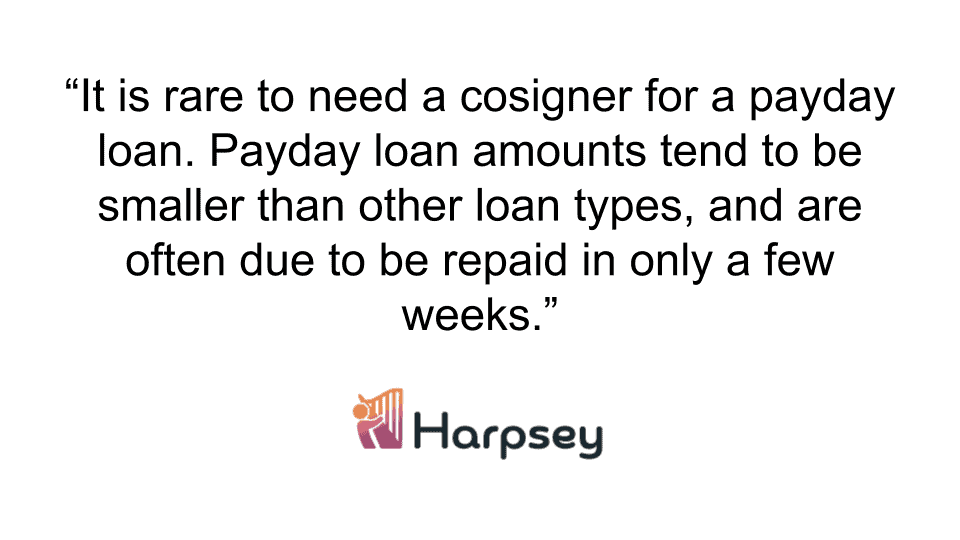A co-signer loan is when an individual agrees to repay your loan if you are unable to. They ‘co-sign’ the loan. Cosigners tend to be parents, close, relatives, or friends. If you are unable to meet your loan repayments, the lender will ask your cosigner to pay instead. The cosigner therefore acts as a form of security should you default on your loan.
To be a cosigner for someone, you must be willing and able to cover the repayments on an individual’s loan if they cannot. A cosigner must be over 21 years old, financially stable, and with a good credit history. If your loan lender requires a cosigner, it is likely because your financial circumstances have caused the lender to require extra security.
An example would be, a young person with no credit history who asks their parents to be cosigners for their first-ever line of credit.
Will I Be Charged Higher Interest For My Loan If I Don’t Have a Cosigner?
Yes, it is possible that you will be charged higher interest without a cosigner. Because a cosigner adds an extra layer of security for the lender, the risk that the lender is taking in providing the loan is reduced. This will therefore also reduce the interest rate. When looking for a loan with bad credit, some companies insist on using a cosigner for an extra element of security.
What Are the Advantages of a Cosigner Loan?
There are several benefits to cosigning a loan. Obviously cosigning is most advantageous for the individual for who you agree to cosign.
For example, cosigning a loan can be a good way of helping a child build credit. When a young person is just starting out, they may find it difficult to get a loan or a credit card with reasonable interest rates because they do not have the credit history that lenders use to determine reliability in a borrower. Cosigning for a child means that they can begin to build credit history, while also reassuring the lender that they will be repaid.
What Are the Risks of a Cosigner Loan?
There are some possible disadvantages for cosigning a loan. By cosigning for another individual, you are becoming liable for that person’s loan. This may present no problems if the borrower is responsible and able to repay on time and in full. However, if that is not the case, there may be negative consequences for you. For example:
- It may lower your credit score. When you cosign a loan, the debt shows up on your credit score like it was your own. Therefore if there are any late or missed payments, your credit score will be affected. If the borrower is unable to pay, or simply stops making the payments, the loan could go into collection. This will also go on your credit reports, and bill collectors may come to you to collect the money. You could even be sued by the lenders in an effort to collect the debt balance.
- Your borrowing power may be affected. Depending on the amount of debt you already have, the addition of the cosigned loan on your credit report may make it seem as if you have more debt that you are able to handle. Consequently, lenders may be less likely to provide you with a decent loan
- It may damage your relationship with the borrower. Cosigning a loan means that you will be financially tied to the borrower, and any financial problems they may run into, for the entire term of the loan (whether that is a year or 10 years). You will be responsible for repayment if the borrower does run into financial difficulties. This may damage your relationship with the borrower.
Do I Need a Cosigner to Take Out A Payday Loan?
No, typically you do not need a cosigner in order to get a payday loan. This is also the case when you apply for a payday loan online with Harpsey. This is because payday loans are almost always unsecured. Eligibility is instead based on other factors, such as employment status and credit score.
Payday loan amounts also tend to be smaller than other loan types, and are often due to be repaid in only a few weeks. You will not need one if you want to borrow $500, for example.
This is why it is rarely warranted to use a cosigner for such a small and fast loan. Loans requiring a cosigner are typically used for much larger amounts.
They are associated more often with auto loans, business loans, or even mortgages. They also may be used for loans with individuals who have poor credit, as a way of making their loan application more credible and thus boosting their chance of approval.
The cosigner market in the US is still fairly small, particularly relative to countries such as the UK, where cosigner loans are a much larger market.


